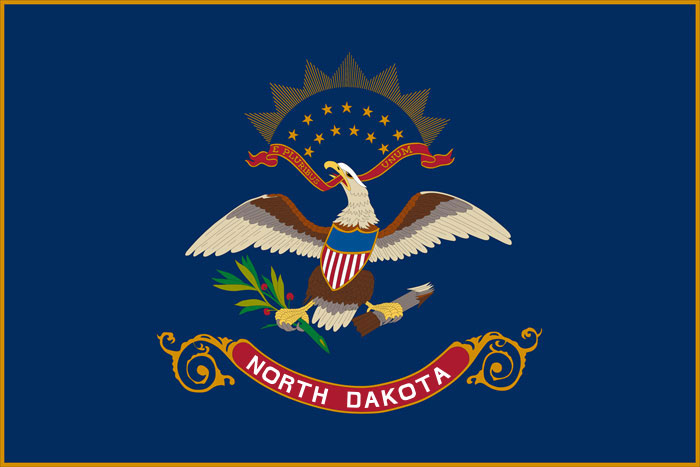BISMARCK, N.D. – Gov. Doug Burgum and First Lady Kathryn Helgaas Burgum today hosted Recovery Reinvented, a daylong event at the Bismarck Event Center focused on ways to reinvent addiction recovery through innovative implementation in North Dakota.
They were joined by national and state addiction recovery experts and more than 800 attendees from throughout the state, including health care providers and administrators, business and community leaders, faith-based organizations, Native American community leaders and educators.
“Addiction is destroying families, affecting businesses and impacting communities across North Dakota,” Gov. Burgum said. “We have the opportunity to change the dialogue and to inspire individual and community investment in recovery through public-private partnerships, innovative solutions and personal engagement.”
The governor and first lady are committed to finding solutions across the full continuum of care: prevention, early intervention, treatment and recovery. Recovery Reinvented offered an opportunity to focus on recovery, kicking off long-term efforts to address the stigma of addiction and reduce the shame associated with the disease. A similar event focused on prevention was announced for April 11.
“I would not be here today if not for my recovery, and I am not alone,” Helgaas Burgum said in her address, describing her own struggle with alcohol addiction and 15 years of recovery. “We are working to reinvent recovery by taking our advocacy to the streets and asking our citizens to begin talking about addiction, to help eliminate the shame and stigma of addiction and treat it like the chronic disease that it is. There is no shame in addiction, and there is so much hope and possibility in recovery. It is time to dream again.”
To help prevent opioid overdoses, which claim the lives of more than 90 Americans every day, Burgum signed an executive order today directing all cabinet agencies to collaborate with local and tribal governments and law enforcement agencies to make naloxone available to first responders, community leaders and individual opioid users and their family members. Naloxone is a medication designed to rapidly reverse opioid overdose in emergency situations.
Attendees received training in naloxone administration, and two single-dose kits of naloxone were available for free to interested participants at the event. The executive order is attached.
Several other initiatives also were announced during the event, including:
- A recovery innovation competition with a $50,000 prize for the creation and implementation of a sustainable business plan that improves recovery services. More details will be provided on www.recoveryreinvented.com.
- A partnership between the North Dakota Department of Corrections and Rehabilitation and the nonprofit White Bison Inc. to create “wellbriety” programs focused on culturally centered care that supports healing around drug use, grief and intergenerational trauma in concert with local tribal and community programs.
- A $280,000 community grant program for opioid prevention and treatment in tribal communities that will support increasing access to evidence-based prevention, treatment and recovery support services.
- Free peer support training – open to any interested individuals, groups or businesses – that provides an opportunity to extend support for recovery beyond the treatment system and into communities to provide greater social support for those in recovery.
- Free Through Recovery, a program designed to increase access to community-based behavioral health services, including care coordination, recovery support and peer support, increasing community engagement by nontraditional providers. These efforts will be supported with $7 million appropriated by the state Legislature as part of a new justice reinvestment initiative. Organizations interested in providing such services can find an application at www.recoveryreinvented.com.
“We all have an opportunity to be a part of reinventing recovery in North Dakota,” said Pamela Sagness, Behavioral Health Division director at the North Dakota Department of Human Services. “Visit www.recoveryreinvented.com to get involved by changing the stigma of addiction, becoming a peer support specialist, or participating in new state initiatives.”
Recognition was also given to a number of impactful community members for their existing efforts to implement effective and innovative solutions for addictions. Award recipients were:
- Nick Stavros, CEO, Community Medical Services, for his work in opening North Dakota’s first opioid treatment program
- Adam Martin, founder, F5 Project, for efforts to support and deter repeat criminal offenses
- Monica Mayer, North Segment councilwoman, MHA Nation, for ongoing work to support drug and alcohol initiatives for Native Americans
- Judith Roberts, founder and administrator, Hope Manor, for advocacy and leadership in developing sober living facilities in North Dakota
- Mike Kaspari, co-founder, First Step Recovery, in posthumous recognition for his lasting impact in providing treatment care
- Sen. Rich Wardner and his wife, Kayleen, for legislative leadership and personal commitment toward changing the lives of women who struggle with addiction.
Additional speakers at today’s event included:
- William Moyers, vice president, public affairs and community relations, Hazelden Betty Ford Foundation
- J. Carlos Rivera, executive director, White Bison Inc./The Wellbriety Training Institute
- Mark V. Holden, senior vice president, general counsel and secretary, Koch Industries Inc.
- Sharon Weber, executive outreach director, The Haven at College
- Holly Sherman, executive director, The Haven at College
- Nell Hurley, executive director, National Alumni Relations, Hazelden Betty Ford Foundation.
The event concluded with the launch of a new advertising campaign called “Dream Again,” aimed at supporting individuals in recovery by raising awareness about addiction as a chronic but treatable disease, overcoming the shame and stigma of addiction, and preventing individuals from developing a substance use disorder.
More information about statewide initiatives and ongoing efforts will be available at www.recoveryreinvented.com or www.behavioralhealth.dhs.nd.gov.


